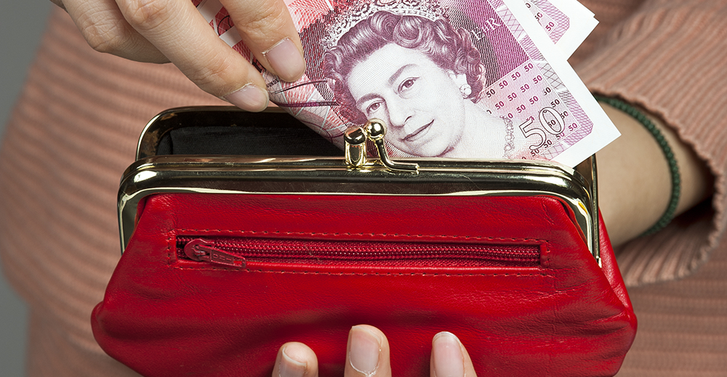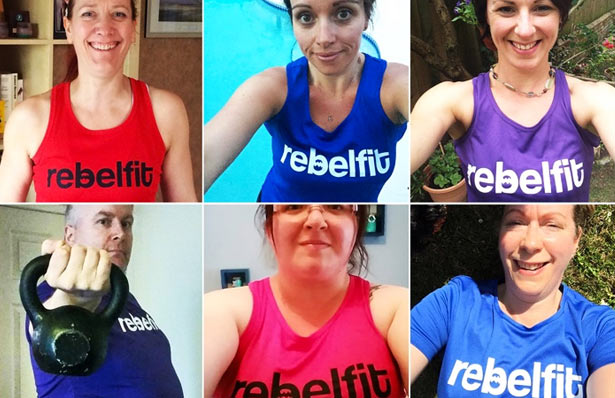
Weight Loss For Dummies!
posted on: April 30, 2017. posted in: Weight loss
I'd like you to imagine a shopping trip. But this is no ordinary shopping trip. This is a rebel shopping trip that only involves cold, hard cash, no cards!
There is £10 in your hand.
There is £100 in your purse.
There is £1000 in your bank account.
So you hit the shops.
You start by spending the £10 in your hand. When that runs out you start spending the £100 in your purse. When that runs out you start spending the £1000 in your bank account.
It's a simple pattern.
Spend the money in your hand.
Spend the money in your purse.
Spend the money in your account.
In that order.
You only withdraw from your account when the money in your hand and your purse runs out.
_____________
The money in your hand is BLOOD SUGAR.
The money in your purse is MUSCLE SUGAR.
The money in your account is FAT.
Weight loss occurs when we spend all the money in our hand (blood sugar), all the money in our purse (muscle sugar), and then gradually empty our bank account (fat). This is called a "caloric deficit", a shortage of calories available from blood sugar and muscle sugar, forcing our body to withdraw from our bank account and start burning fat.
As we burn off our sugar and fat stores...
We lose weight.
Simple, right?
BUT.
When we enter a caloric deficit, the human body doesn't like burning off precious fat. It doesn't like spending those precious fat calories in our bank account. Because those precious fat calories are going to keep us alive if the caloric deficit lasts a long time, for example, if we were living through a famine.
To protect us from starvation, and protect those precious fat calories, the body pulls a really neat little trick.
It starts to burn off MUSCLE.
This has three famine surviving benefits.
1. The proteins in the muscle tissue provide calories. It's a bit like running out of money in your hand and money in your purse, so you decide to sell some of your purse to get more money to spend on your shopping trip, because you don't want to spend any of your precious savings.
2. Burning off muscle slows your metabolic rate. By selling off some of your purse you shrink your purse, meaning you can spend less on future shopping trips. The smaller your purse, the less money that is spent from that purse. The smaller your muscles, the less energy that is spent by those muscles.
3. Burning off muscle increases your fat storage. If your purse used to be able to hold £100, but it shrinks so it can now only hold £50, when you get paid £100 then £50 converts straight to fat, whereas before it would be held in your purse. The smaller your purse, the faster you gain fat. The bigger your purse, the slower you gain fat.
So the human body sheds muscle and SHRINKS YOUR PURSE, in a deliberate attempt to make your body spend less and save more, replenishing those precious fat stores.
This phenomenon is how the human species, and 1000s of generations of our ancestors, have been able to survive famine. When famine hit, they would enter a caloric deficit (calorie shortage) and the body would respond by shrinking their metabolic purses (burning muscle) to save precious calories.
It's a bit like if there was a recession, making everyone have smaller purses to both curb their spending and increase their savings might help them survive it.
So before you decide to "lose weight", make sure you accompany that goal with "maintaining muscle" or even planning in periods of "building muscle".
You want to spend from your bank account, without spending so quickly you shrink your purse. And if you do shrink your purse, you want to plan in periods of building it back up again.
DIETING SHRINKS PURSES.
Which is one reason why dieters are so prone to rebound weight gain, the moment they "fall off" their diets. So you either have to avoid dieting, or plan in cycles of dieting following by muscle building, to offset any purse shrinkage.
Liam
p.s. If you enjoyed this post please SHARE IT! And if you'd like to learn more, please ask a question in the comments below!








